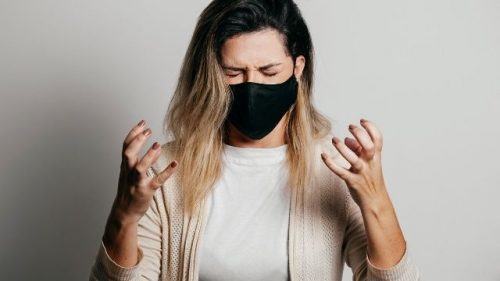Mental Health And Substance Use Treatment During Covid-19 Austin, Texas
Austin, TX has for the most part lefts its doors and continues to support Resurgence Behavioral Health Drug & Alcohol Rehabilitation for taking in patients in need of a place to recover during hard times.

Austin, United States – December 8, 2020 /MarketersMedia/ —
According to a survey conducted in mid-July, 53% of adults in the United States said that anxiety, stress, and coronavirus had negatively affected their mental health. That’s 32% more than in March when the question was first included in the nation’s poll. The financial crisis and the resulting economic recession and the increase in drug and alcohol use affect many people’s mental health. It also increases the risk for people who already have mental illness and drug use disorders.
As the pandemic continues, ongoing and necessary public health measures expose many people to situations associated with mental health problems such as anxiety, depression, eating disorders, and substance use disorders. Many adults also report increased alcohol and drug use and chronic illnesses that have been exacerbated by stress and anxiety caused by a coronavirus.
Resurgence Behavioral Health Drug & Alcohol Rehabilitation in Austin Texas has continued to stay open and offer treatment for those struggling. Call them at 877-321-2658 to design an addiction treatment plan custom to unique addiction and personal needs.
This report examines the mental health and substance use that the country is facing due to the spread of the coronavirus. Wherever possible, they incorporate data from new surveys to collect data on the health, economy, and impact of this pandemic. They also discuss the effects of alcohol and drug use disorders and the potential health effects based on information from the World Health Organization (WHO) and the Centers for Disease Control and Prevention (CDC).
This pandemic’s isolation and loneliness may pose a particular psychological risk to households with young people and older adults. Data from the end of March showed that people living in residential and nursing homes reported concerns and stress related to the coronavirus and lack of protection on the ground.
The survey showed that women and children under 18 were most likely to report significant adverse mental health effects. The number of older adults (aged 65 and over) reporting on their health increased in March. The survey shows that they were more than twice as likely as women (18-24 years) to report the pandemic’s significant positive and negative psychological effects.
Research has shown that job loss is associated with an increase in depression and can increase mental health problems such as anxiety, depression, and drug use. A recent survey showed that people on low incomes reported higher pressure and depression levels than people on higher incomes. There is a strong link between mental health and substance use, which needs to be reassessed in the current state of our health system. Barriers to access to mental health services, such as lack of access to health insurance and the high cost of care and treatment.
During last year’s COVID-19 pandemic, more than 1.5 million people in the United States reported having a mental illness. Most of them had a severe depressive episode in recent years (2017-2018). Of those with severe mental illness (which often results in functional impairments and restricts life activities), more than 11 million suffered at least one episode of severe depression or anxiety.
More than 48,000 Americans died by suicide in 2018, and the number of drug overdose deaths has more than tripled in the past 19 years. More than 1.5 million people with serious mental illness reported seriously considering suicide last year.
Moreover, these epidemics have shown that they can lead to general stress in the population, which leads to an increased risk of depression, anxiety, substance use disorders, and suicide. In this unprecedented period of uncertainty and fear, the risk of mental illness, such as depression and substance abuse, is likely to increase for people with these disorders.
For more information on mental health and substance abuse treatment visit the Resurgence Behavioral Health
Contact Info:
Name: Resurgence Behavioral Health
Email: Send Email
Organization: Resurgence Behavioral Health
Address: 3151 Airway Avenue H2, Costa Mesa, CA 92626
Phone: Call Us 877-321-2658
Website: https://resurgencebehavioralhealth.com/
Source URL: https://marketersmedia.com/mental-health-and-substance-use-treatment-during-covid-19-austin-texas/88989020
Source: MarketersMedia
Release ID: 88989020